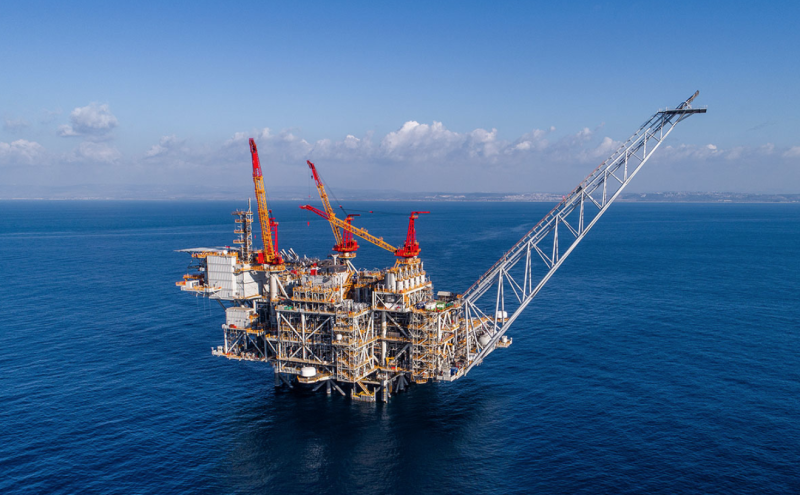Chevron has inked a $610 million deal with state-owned Israel Natural Gas Lines (IGNL) to construct the Nitzana pipeline, a project aimed at significantly boosting Israeli gas exports from Israel’s giant Leviathan gas field in the Eastern Mediterranean to Egypt. The deal is also expected to help secure a final investment decision (FID) on the field’s Phase 1B expansion by year-end.
Nitzana’s launch, as confirmed by Chevron, is integral to fulfilling a $35 billion agreement signed in August by Leviathan’s partners—NewMedEnergy (45.34%), Chevron (39.66%), and Ratio Energies (15%)—to double current long-term contract sales of natural gas to Egypt via offtaker Blue Ocean Energy.
When completed in 2028, the pipeline would transmit around 600 MMcf/D across 65 km from the Ramat Hovav industrial zone in southern Israel’s Negev desert to Nitzana at the Egyptian border. According to a filing NewMed made with the Israel Security Authority and the Tel Aviv Stock Exchange, it would increase Israel’s exports to Egypt to more than 2.2 Bcf/D.
IGNL will construct, operate, and manage the pipeline under a 15-year extendable contract. The project also includes construction of a compressor station at Ramat Hovav, according to the stock exchange filing.
Strengthening Regional Energy Security
Jack Baker, managing director of Chevron’s Eastern Mediterranean Business Unit, called the deal a “milestone (that) reflects Chevron’s commitment to advancing energy security in Israel and regionally,” as reported in The Times of Israel.
“The Nitzana export route will deliver substantial domestic economic benefits and also support energy security across the Eastern Mediterranean region,” he said.
Egypt will invest $400 million to build the pipeline on its side of the border, with the Egyptian Natural Gas Company (Gasco) overseeing the project. NewMed and its partners will finance the Israeli side.
In reporting its 1H 2025 results on 11 September, UK- and Israeli-listed independent gas producer Energean said it plans to book capacity to transport 2 Bcm/year of gas via Nitzana when its Katlan offshore gas field in the Eastern Mediterranean comes onstream in H1 2027.
Targeting Multiple Opportunities
Egypt has taken a multivector strategy to address its ongoing energy crisis by raising imports, organizing bid rounds to develop new fields in its sector of the Mediterranean Sea, the Nile Delta, and in North Sinai, and by scaling up investment in mature domestic fields.
Earlier this month, state-owned Egyptian Natural Gas Holding Co. (EGAS) signed $340 million worth of contracts with Shell, Eni, BP’s Arcius joint venture with ADNOC’s XRG investment arm, and Russia’s Zarubezhneft to drill 10 wells in mature acreage.
This followed an award by EGAS in June of six blocks into which an expected $245 million would be invested to drill a minimum of 13 exploration wells offshore and onshore.
In August, Egypt’s State Information Service quoted Prime Minister Mostafa Madbouly as telling a press conference that while Egypt’s daily gas output had plunged over 3 years to 4.1 Bcf from a peak of more than 6.6 Bcf, the government had begun to see signs of a turnaround that could see a return to peak levels by 2027.


